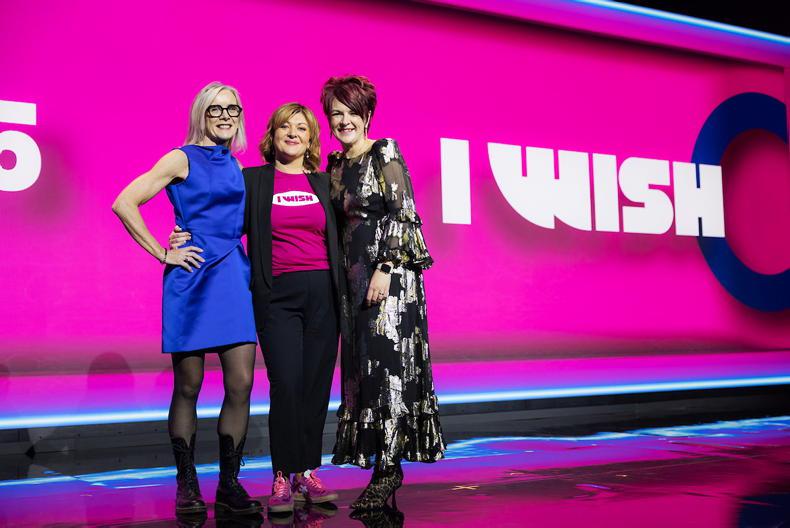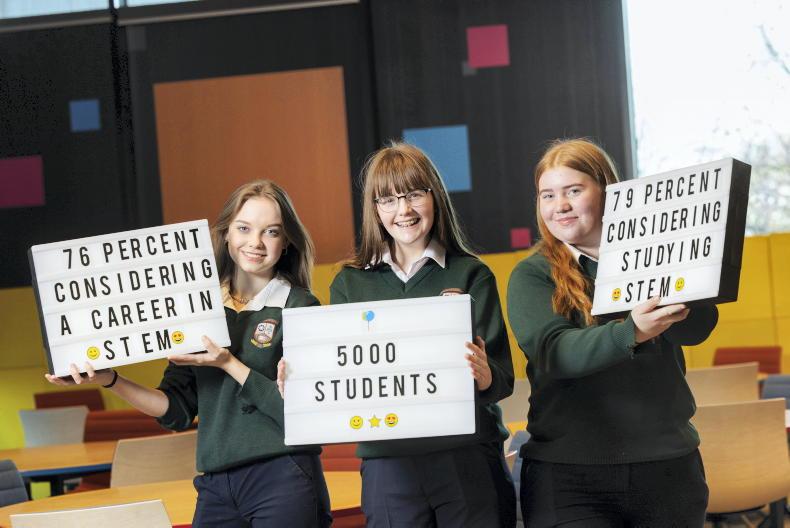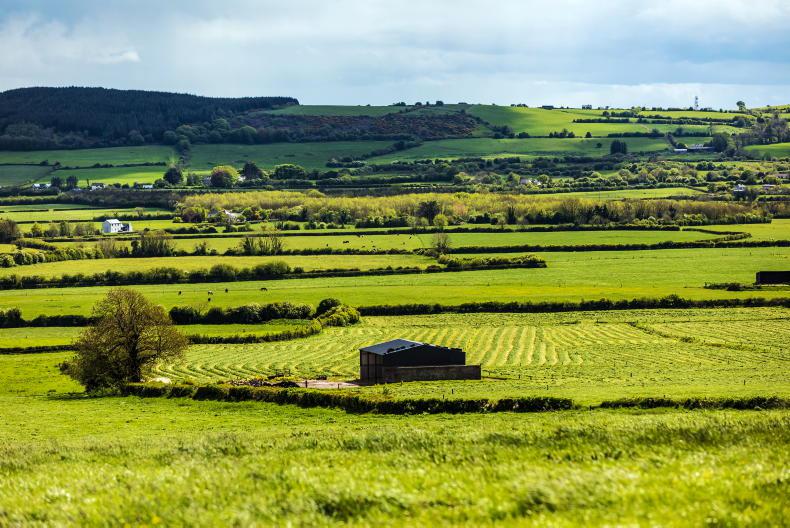The bioeconomy looks at different ways of processing waste or byproduct materials from agriculture, fisheries and other areas of land use to create food, feed, fibre bio-based products and bio-energy.
The development of Ireland’s bioeconomy is a key aspect of the Climate Action Plan and feeds into our circular economy goals by optimising the use of renewable biological resources and growing the economy (particularly within rural areas).
What does a career in the bioeconomy look like?
“I have always been interested in how using science or biology could influence the environment and climate change,” says Dublin native Kevin Ryan.
Out of this interest, Kevin has paved his career within Ireland’s national bioeconomy cluster: the Irish Bioeconomy Foundation (IBF) , which is headquartered at the former Lisheen Mine in Co Tipperary. A bit of chance and a lot of science has led him to where he is today.
Educational background
Kevin studied science in University College Dublin (UCD). “I specialised in microbiology, genetics, botany and environmental biology in my second year,” he says. “Then in third and fourth year, I studied environmental biology, specialising in environmental microbiology.
“I was interested in the environmental aspects of microbiology, so I then did a master’s in microbiology. Again, I did my thesis in the environmental microbiology lab,” he adds.
After five years, Kevin earned a Bachelor of Science (BSc) in environmental biology and a Master’s of Science (MSc) in microbiology.
Science-y jobs
Kevin’s intrigue with science continued after college as he worked as a lab demonstrator for two microbiology classes in UCD.
“After, I got a job working in City Analysts, which is predominantly a water-testing company,” he explains. “[This job] involved testing water for both bacteria and parasites. I would test different water samples for [a particular] parasite. Before I left, I also relocated the lab from Dublin to Clare, because that’s what [the company’s] plan was – to move the lab. I helped them move the equipment and train in the lab analysts in Clare.”
After a brief stint travelling around Ireland, Spain and France on a bike, Kevin got a job the pharmaceutical sector.
“It was just kind of a transitionary job between travelling and finding something that was more suitable to what I was interested in,” he says.
In April 2020, Kevin started working for the IBF.
“I had been following IBF and their activities for a while on LinkedIn, and I saw a job posted there. I applied for it back in March 2020,” says Kevin.
What is the IBF?
To understand the IBF, we first need to understand what the bioeconomy is.
To put it simply: it is the circular process of growing bio-based resources, converting these resources into bio-based products and using bio-based waste to make new products and services. An example of this might be taking poultry manure and transforming it into electricity (BHSL Waste Solutions does this; they are one of IBF’s member organisations.)
Kevin explains: “The bioeconomy is the part of the economy which uses renewable resources from agriculture, forestry and the marine to produce food, feed, materials and energy, while reducing waste, in support of achieving a sustainable and climate-neutral society.
“Using these resources, it’s possible to produce products that could be used instead of fossil fuel resources, so it would be better for the climate.”
The IBF, therefore, is Ireland’s national bioeconomy cluster and is a non-profit organisation.
“Through funding from Enterprise Ireland, IBF was created in 2017 to establish a forum for industry, government, policy leaders and academia for Ireland’s growing bioeconomy. We promote the conversion of natural resources to value-added products. We also work on a number of different European projects.”
Working for the IBF
In his two years with the IBF, Kevin has been part of a few different projects.
“I started off working as a value chain analyst,” he says. “This was on the (InterTrade Ireland sponsored) BioMap, which is mapping organisations related to the bioeconomy on the island of Ireland.
“We mapped approximately 600 organisations, as well as information such as the resources used, the products produced and waste streams [in each organisation]. We would then interview the most interesting and relevant companies to try and promote cross-border collaboration between the Republic of Ireland and Northern Ireland. This was from April 2020 to April 2021.”
European projects
Since April 2021, Kevin has been managing two of IBF’s European projects – MPowerBIO and BIObec – and has been working on their Bioeconomy Ventures project.
“The Bioeconomy Ventures project aims to build the reference platform for bioeconomy-based start-ups seeking to gain access to finance,” he explains. “It is the main meeting point between innovators and investors in the European bioeconomy.”
The MPowerBIO project assists small and medium-sized (SMEs) businesses to find investment to get their business idea off the ground, while the BIObec project aims to create biobased education centres across Europe.
Careers in the bioeconomy
Interested in a career within Ireland’s bioeconomy? Kevin says perhaps you are already a part of it.
“There would be a lot of people who are working in the bioeconomy without even realising; all the primary production sectors are working in the bioeconomy,” he says.
“[If you want to work more directly in the industry], the most common entry route would probably be to study a science discipline such as biology, chemistry or agricultural science,” he continues. “However, there’s a lot of different entry routes and you could have any level of education or career experience.”
There are people with an array of different career experiences working for the IBF. From accountants, biotechnology and business degree graduates to engineers, Kevin says there is a place for anyone.
Ultimately, you should be interested in how biological resource use can benefit the climate.
If you want a taster of what working for the IBF is like, you might consider an internship with the company.
Kevin says: “IBF offers this internship called Future Talent Programme, which allows students or recent graduates to enter the bioeconomy field to see what’s involved in working within the bioeconomy.”
Additionally, Munster Technological University and UCD offer a postgraduate diploma in bioeconomy and business. The programmes take a year to complete and offer flexible learning – part time and blended; making it a good option for those who wish to upskill in this area.
Read more
Agri Careers: Designing agricultural machinery for tomorrow
Do we need to change our attitude when it come to organics?
Climate Conversations: changing materials and mindsets through the bioeconomy
The bioeconomy looks at different ways of processing waste or byproduct materials from agriculture, fisheries and other areas of land use to create food, feed, fibre bio-based products and bio-energy.
The development of Ireland’s bioeconomy is a key aspect of the Climate Action Plan and feeds into our circular economy goals by optimising the use of renewable biological resources and growing the economy (particularly within rural areas).
What does a career in the bioeconomy look like?
“I have always been interested in how using science or biology could influence the environment and climate change,” says Dublin native Kevin Ryan.
Out of this interest, Kevin has paved his career within Ireland’s national bioeconomy cluster: the Irish Bioeconomy Foundation (IBF) , which is headquartered at the former Lisheen Mine in Co Tipperary. A bit of chance and a lot of science has led him to where he is today.
Educational background
Kevin studied science in University College Dublin (UCD). “I specialised in microbiology, genetics, botany and environmental biology in my second year,” he says. “Then in third and fourth year, I studied environmental biology, specialising in environmental microbiology.
“I was interested in the environmental aspects of microbiology, so I then did a master’s in microbiology. Again, I did my thesis in the environmental microbiology lab,” he adds.
After five years, Kevin earned a Bachelor of Science (BSc) in environmental biology and a Master’s of Science (MSc) in microbiology.
Science-y jobs
Kevin’s intrigue with science continued after college as he worked as a lab demonstrator for two microbiology classes in UCD.
“After, I got a job working in City Analysts, which is predominantly a water-testing company,” he explains. “[This job] involved testing water for both bacteria and parasites. I would test different water samples for [a particular] parasite. Before I left, I also relocated the lab from Dublin to Clare, because that’s what [the company’s] plan was – to move the lab. I helped them move the equipment and train in the lab analysts in Clare.”
After a brief stint travelling around Ireland, Spain and France on a bike, Kevin got a job the pharmaceutical sector.
“It was just kind of a transitionary job between travelling and finding something that was more suitable to what I was interested in,” he says.
In April 2020, Kevin started working for the IBF.
“I had been following IBF and their activities for a while on LinkedIn, and I saw a job posted there. I applied for it back in March 2020,” says Kevin.
What is the IBF?
To understand the IBF, we first need to understand what the bioeconomy is.
To put it simply: it is the circular process of growing bio-based resources, converting these resources into bio-based products and using bio-based waste to make new products and services. An example of this might be taking poultry manure and transforming it into electricity (BHSL Waste Solutions does this; they are one of IBF’s member organisations.)
Kevin explains: “The bioeconomy is the part of the economy which uses renewable resources from agriculture, forestry and the marine to produce food, feed, materials and energy, while reducing waste, in support of achieving a sustainable and climate-neutral society.
“Using these resources, it’s possible to produce products that could be used instead of fossil fuel resources, so it would be better for the climate.”
The IBF, therefore, is Ireland’s national bioeconomy cluster and is a non-profit organisation.
“Through funding from Enterprise Ireland, IBF was created in 2017 to establish a forum for industry, government, policy leaders and academia for Ireland’s growing bioeconomy. We promote the conversion of natural resources to value-added products. We also work on a number of different European projects.”
Working for the IBF
In his two years with the IBF, Kevin has been part of a few different projects.
“I started off working as a value chain analyst,” he says. “This was on the (InterTrade Ireland sponsored) BioMap, which is mapping organisations related to the bioeconomy on the island of Ireland.
“We mapped approximately 600 organisations, as well as information such as the resources used, the products produced and waste streams [in each organisation]. We would then interview the most interesting and relevant companies to try and promote cross-border collaboration between the Republic of Ireland and Northern Ireland. This was from April 2020 to April 2021.”
European projects
Since April 2021, Kevin has been managing two of IBF’s European projects – MPowerBIO and BIObec – and has been working on their Bioeconomy Ventures project.
“The Bioeconomy Ventures project aims to build the reference platform for bioeconomy-based start-ups seeking to gain access to finance,” he explains. “It is the main meeting point between innovators and investors in the European bioeconomy.”
The MPowerBIO project assists small and medium-sized (SMEs) businesses to find investment to get their business idea off the ground, while the BIObec project aims to create biobased education centres across Europe.
Careers in the bioeconomy
Interested in a career within Ireland’s bioeconomy? Kevin says perhaps you are already a part of it.
“There would be a lot of people who are working in the bioeconomy without even realising; all the primary production sectors are working in the bioeconomy,” he says.
“[If you want to work more directly in the industry], the most common entry route would probably be to study a science discipline such as biology, chemistry or agricultural science,” he continues. “However, there’s a lot of different entry routes and you could have any level of education or career experience.”
There are people with an array of different career experiences working for the IBF. From accountants, biotechnology and business degree graduates to engineers, Kevin says there is a place for anyone.
Ultimately, you should be interested in how biological resource use can benefit the climate.
If you want a taster of what working for the IBF is like, you might consider an internship with the company.
Kevin says: “IBF offers this internship called Future Talent Programme, which allows students or recent graduates to enter the bioeconomy field to see what’s involved in working within the bioeconomy.”
Additionally, Munster Technological University and UCD offer a postgraduate diploma in bioeconomy and business. The programmes take a year to complete and offer flexible learning – part time and blended; making it a good option for those who wish to upskill in this area.
Read more
Agri Careers: Designing agricultural machinery for tomorrow
Do we need to change our attitude when it come to organics?
Climate Conversations: changing materials and mindsets through the bioeconomy









SHARING OPTIONS